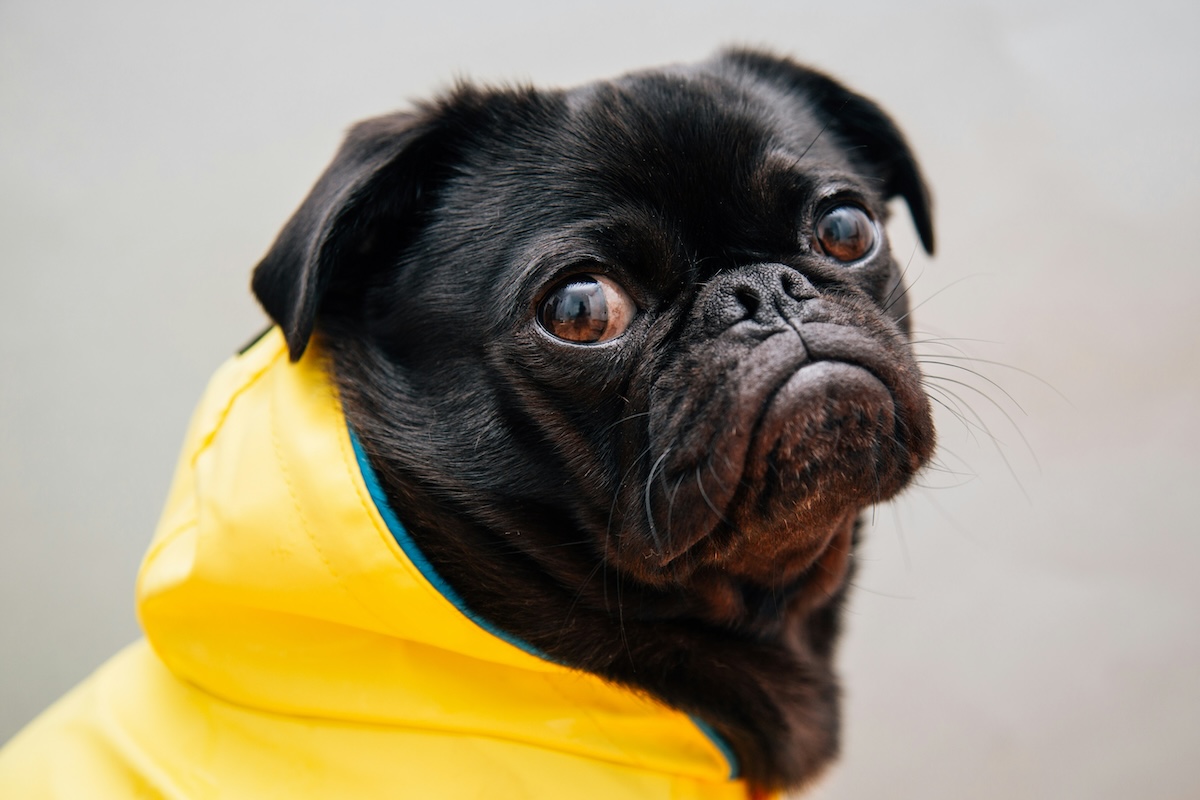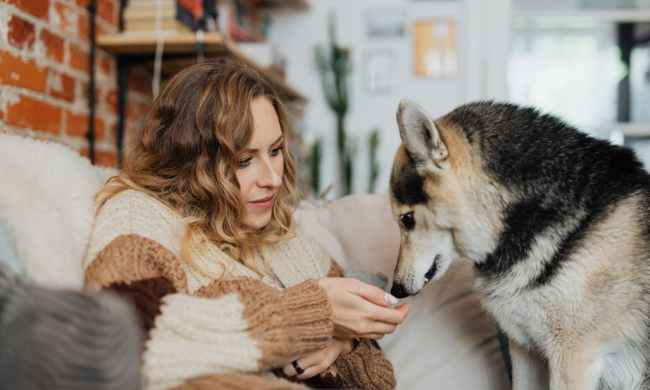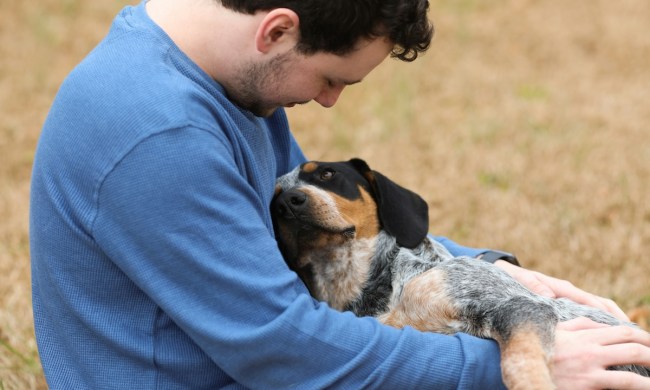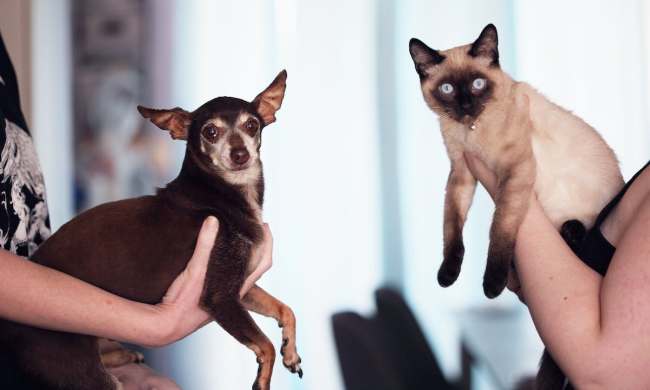
Sometimes you might think you hear your cat using their potty, but when you go into check, it’s actually the dog eating cat poop. Gross! While it seems pretty revolting to us, dogs sometimes eat poop, the feline variety included. Coprophagia, which means eating poop, shows up reasonably frequently in pups, and certain diets, environments, and even breeds can make this act more likely (research says hounds and terriers are the groups most likely to chomp poop, in general).
So why do dogs eat cat poop, and what should you do about this behavior? Read on for a few things to check and a couple of tips to prevent this extra meal.
Why do dogs eat cat poop?
Theories abound, but it turns out lots of different mammals eat poop, their own and others’. One possibility is that not all nutrients fully digest when they go through our systems, which means there are plenty of vitamins to have by consuming feces. Sometimes, these cravings result from a nutrient-deficient diet that is easy to fix by changing up your dog’s food.
Talk to your vet about what you feed your pooch and how you might improve it. Additionally, a few medical conditions cause dogs to struggle with digestion or absorption and your dog doc can take a look at those, too. Lastly, and we realize this is a common cause for weird dog behavior, they might just be bored. Add more toys, exercise, and playtime to their life and see if that cuts down on the poo hunting.
Is cat poop bad for dogs?
They’re almost certainly to be OK in the short term, though don’t panic if you find that they throw some of it up. But eating cat poop can harm your bud. Arguably, the most dangerous part is the litter, which can cause digestive issues. Some bacteria and parasites might transfer this way as well, including nasties like tapeworms. You can help prevent these problems by keeping all your animals on preventatives, up-to-date vaccines, and healthy diets.

What can you do to prevent your dog from eating cat poop?
Assuming your beasties all check out at the vet, your best bet is to use plain old separation techniques to keep Fido away from the feline feces. Try putting the litter box in a separate room that’s not accessible to the dog — a baby gate might help here, assuming the kitty can hop it easily. Some cat toilets specifically work to prevent other four-leggers from getting in, such as self-cleaning ones. For the truly advanced pet parent, you can teach your cat to use the toilet! Try out a few options and see what works to deter your canine.
Ultimately, don’t stress too much if your pupper eats poop occasionally. Always book a vet visit when you see a sudden behavior change, and make sure all your animals are in good health. Then try a few tricks to keep your dog away from the litter. When all else fails, let it go. We hate to be the ones to mention it, but the rare log won’t hurt.



